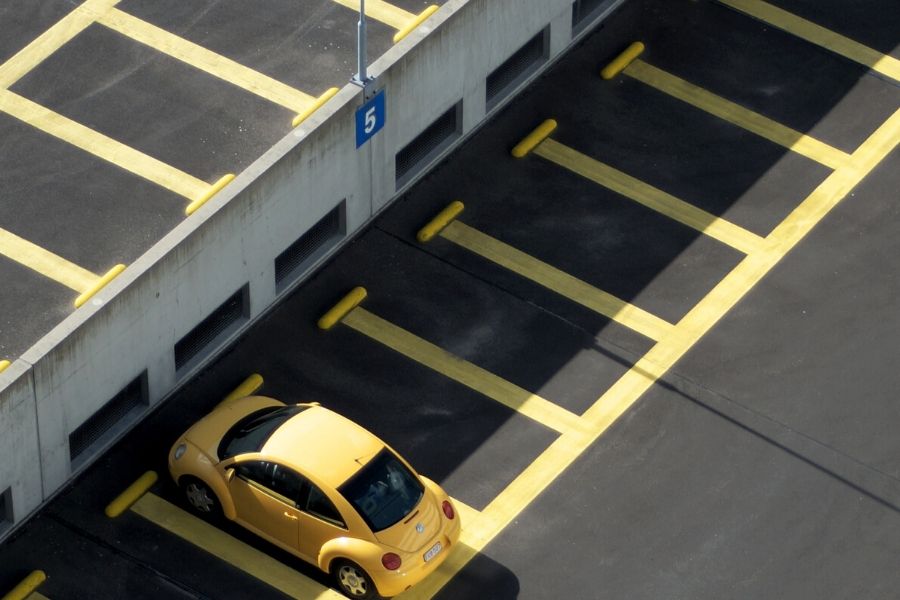
For a long time, Chinese courts have assigned cases to judges by their own dedicated personnel. Now, Chinese courts are trying to replace the traditional practice with a random case assignment mechanism.
After accepting the parties’ application for case docket, Chinese courts will assign the case to a judge (case hearing by a sole judge) or several judges (case hearing by a collegial panel). In practice, the court calls this “case assignment”(案件分配).
In China, it is up to courts themselves to decide on the case assignment. Courts usually adopt two modes for the case assignment.
The first is the designated mode, that is, the dedicated personnel within the court will assign a case to a judge according to the specific circumstances of the case. At present, most Chinese courts adopt this mode.
The second is the random mode, that is, the court randomly assigns a case to a judge according to certain random rules. China’s Supreme People’s Court (SPC) is promoting this mode.
I. Designated Mode
As far as the designated mode is concerned, the courts may decide by themselves who shall be in charge of the case assignment ("the person responsible for case assignment"). For example:
- In some courts, the case assignment is decided by the Case-filing Division (the department responsible for accepting the parties’ application for case docket).
- In some courts, the director of the Trial Division decides the case assignment. There are usually several Trial Divisions in a Chinese court and judges are affiliated to a specific Trial Division. Each Trial Division is responsible for hearing a specific type of cases (such as marital and family disputes, commercial disputes, IP disputes, etc.), while the director is the person in charge of the Trial Division.
- In some courts, the administrative staff of the courts decides the case assignment. For example, the staff of the Trial Management Office.
- In addition to the routine case assignment by dedicated departments or personnel, the President and Vice-President of the court are entitled to assign a certain case to a certain judge at their discretion.
How does the person responsible for case assignment decide which judge will hear a certain case?
At present, we have not found any court publicizing its rules for case assignment. In practice, the person responsible for case assignment would usually considers the following factors:
- Expertise: If some judges are well-versed in a certain type of cases or are required to specialize in a certain type of cases, then such type of cases will be assigned to these judges for trial.
- Jurisdiction: Some judges are only responsible for cases in a certain area within the jurisdiction of the court. If a case occurs in such area, it will be tried by these judges.
- Workload: If the workload of some judges is light temporarily, the newly accepted cases will be assigned to these judges first, thus ensuring that the workload of each judge is roughly the same.
- Efficiency: If the efficiency of some judges is higher, the newly accepted cases will be assigned to these judges first, that is, “more work for the competent”.
- Risk: If the risk of some cases is relatively high, then such cases will be equally assigned to different judges so as to diversify the risk, or assigned to the judges who are good at risk control to reduce the risk.
The designated model has also been criticized within the courts for the following reasons:
Firstly, given that there are no clear rules for case assignment, sometimes the person responsible for case assignment, judges and the parties of the case may collude with each other, and the cases will be intentionally assigned to the judges who take sides with a certain party of the case.
Secondly, cases are usually assigned to judges passively. Judges themselves cannot control the number, type and risk of the cases they will hear. Therefore, some judges often complain that the cases assigned to them are too many, too difficult, or do not fall under their areas of interest.
Thirdly, judges' professional competence is narrowed down and judges themselves are suffocated from further development. Most courts usually allow certain judges to hear only certain types of cases, which results in judges being well-versed in only such cases while unfamiliar with others.
Fourthly, the efficiency of case assignment is too low. Chinese courts are facing litigation explosion. Many local courts have a huge number of newly accepted cases (such as Shanghai Pudong Primary People’s Court, Beijing Chaoyang Primary People’s Court, and Shenzhen Futian Primary People’s Court, each accepting about 100,000 cases each year). Quite a few persons responsible for case assignment do not have enough time to appoint appropriate judges for each case in time.
II. A New Mode in Popularization: Random Case Assignment
In order to solve the shortcomings of the designated mode, the SPC has begun to popularize a new case assignment mode in the recent judicial reform, that is, the random mode shall be given priority while the designated mode may serve as a supplement. In practice, most courts use computers for random case assignment.
The SPC requires that each court should randomly assign cases to judges according to type and difficulty of cases and certain rules. If a court has established a professional trial team, which specializes in hearing a specific type of case, then cases shall be randomly assigned among the judges within the team.
Once a judge has been appointed to hear a case, the court may not replace the judge so appointed without authorization. The president or the director may replace the judge only on specific grounds, such as the judge should excuse himself, the judge suffers from physical illness, or the judge may incur corruption. The court must publicly justify the replacement of the judge.
The designated mode is limited to specific circumstances, such as major or difficult cases; a series of cases or related cases with the same plaintiff or defendant, of the same type, and requiring certain judges for unified trial; cases that should be under the jurisdiction of lower courts but higher courts decide to hear such cases by themselves; cases that the president or the director deems it necessary to supervise the hearing process thereof; cases that the president or the director deems it inappropriate to be assigned randomly.
III. Our Comments
In China, the case assignment is one of the factors to ensure a fair trial, which the SPC has already become aware of in the current judicial reform. Therefore, the SPC has released a positive signal for solving this problem, as evidenced by the newly-released regulations where the popularization of random mode is mentioned respectively in April 2017 and December 2018. But of course, we have to wait and see when local courts can adopt this mode at a large scale.
In addition, the SPC’s regulations still leave some leeway for the designated mode, such as: if the president or the director deems it inappropriate to assign a certain case randomly, then they still have the right to adopt the designated mode. Therefore, whether the random case assignment mode can be effectively implemented remains to be seen.
References:
[1]《最高人民法院關于落實司法責任制完善審判監督管理機制的意見(試行)》
[2]《最高人民法院關于進一步全面落實司法責任制的實施意見》
[3]《北京市高級人民法院關于隨機分案的規定(試行)》
[4] 王智剛. 案件分配制度改革的探索與實踐[N]. 人民法院報,2016-03-02(008).
[5] 陳阿妍,馬桂芳.司法改革環境下的分案制度初探及構想,http://cdzy.chinacourt.gov.cn/article/detail/2017/11/id/3047073.shtml
[6] 謝剛炬. 人民法院隨機分案機制改革路徑探究——以五家中基層法院的改革實踐為視角[A]. 最高人民法院.法院改革與民商事審判問題研究——全國法院第29屆學術討論會獲獎論文集(上)[C].最高人民法院:國家法官學院科研部,2018:11.
[7] 丁力.案件分配方式與合議庭評議制度的改革與完善,http://lyzy.chinacourt.gov.cn/public/detail.php?id=752
[8] 王亞明. 立案登記與科學分案[N]. 人民法院報,2015-08-31(002).
Contributors: Guodong Du 杜國棟 , Meng Yu 余萌









